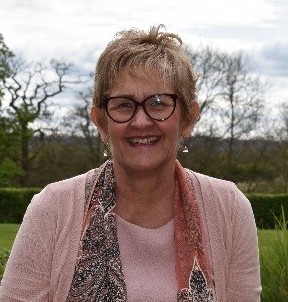Home News & Views Hearing the voice of social care
Hearing the voice of social care
 Paula du Rand
Paula du Rand
According to Professor Deborah Sturdy, Chief Nurse for Adult Social Care, the launch of SCNAC across England has been a very exciting moment for the profession. In my own modest view, this is a significant milestone, not only for the nursing profession in general but especially for social care nurses and others working in social care.
On the 1 July 2022, NHS England established 42 statutory Integrated Care Boards (ICB) in line with the Health and Care Act 2022. This is part of the Act’s provision for creating Integrated Care Systems (ICS). Social Care is one of the partners of the ICS but the sector has never had any formal representation until now.
The Covid19 Pandemic, as an example, has shown that no hospital, GP surgery or care home can rise to the challenge alone and thus highlighted the importance of integration of health and care services. This new development now gives social care nurses and other partners in social care, not only an opportunity to keep the Directors of Nursing of the ICB informed of the work they are doing but also to allow the ICB to have a better understanding of the social care sector.
Everyone working in social care is aware of the immense resilience they have. Regardless of the fact that social care is perhaps much less at the forefront of people’s minds than the NHS, its workforce represents a significant part of overall public service employment. According to the Office for National Statistics Labour Force Survey 2020, there are approximately 900,000 people in the UK working in frontline care roles as their primary job. During the pandemic, care staff were left feeling undervalued compared to their counterparts in the NHS. This was played out in practical terms as, for example, care workers did not have priority access when shopping for food and necessities. Fortunately, they were included in the clapping.
Now that the clapping is gone and Covid19 is under control, it is time to act and let our voices be heard. The Social Care Nursing Advisory Council is a platform where social care can work in partnership to raise its profile and let our colleagues in the ICB understand our role better. Let us make use of this platform to improve the image of social care and gain the respect it deserves.
As the SCNAC Chair for Solihull and Birmingham I would like to invite everyone involved in social care, no matter what capacity, to step forward and join us in making an impact to bring about the changes this sector so desperately needs. We have finally been given the opportunity to work in partnership and need to grab hold of it.
“So, never lose an opportunity of urging a practical beginning, however small, for it is wonderful how often in such matters the mustard-seed germinates and roots itself.”
Florence Nightingale
My journey as participant of the Teaching Care Homes (TCH) programme (supported by FoNS, Care England and the Burdett Trust for Nursing) started when Kineton Manor Nursing Home was selected to take part in 2019. The programme provided a very enjoyable opportunity to work with other nursing homes and I feel it contributed to the knowledge and skills I require for my role as chair of the SCNAC. I gained knowledge and experience in project development and networking, and was inspired, and fuelled with the confidence to stand up and let my voice be heard for the cause to advance and promote social care. I have met other ‘TCH Alumni’ who have also been appointed as chairs of SCNACs!
The Florence Nightingale Foundation provided the development programme for all the Chairs of the SCNACs. For more information on your local Social Care Nursing Advisory Council please visit the Outstanding Society website.
Comments are closed.

